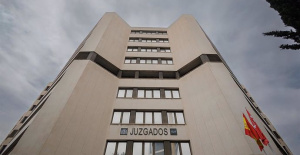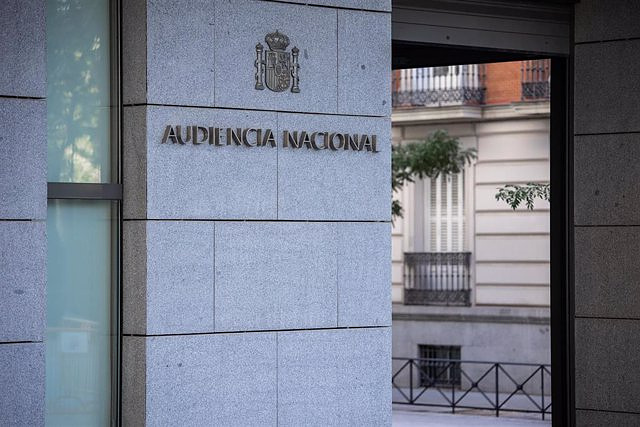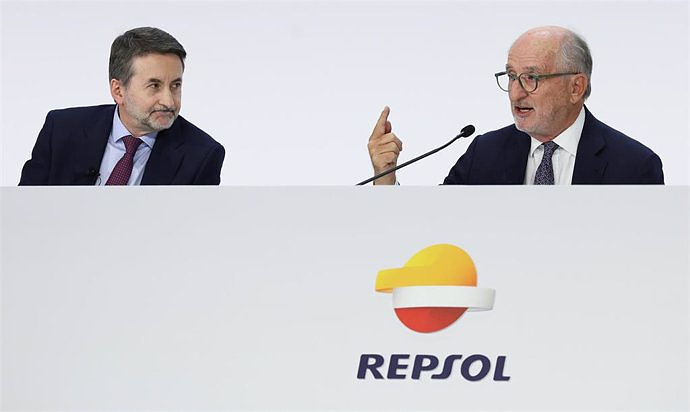The judge issued search and arrest warrants against this and another defendant after failing to attend two summonses
MADRID, 4 Ene. (EUROPA PRESS) -
Cristian Albeiro, one of the defendants for the alleged pyramid scam with cryptocurrencies committed through the investment platform Kuailian, which is being investigated by the National Court (AN), has been arrested in the United Arab Emirates (UAE), in compliance with a of the search and capture orders issued by the reinforcement magistrate of the Central Court of Instruction Number 6, Joaquín Gadea.
Albeiro has been detained for extradition purposes, although there is still a second international arrest and surrender warrant pending execution, the one against David Ruiz de León, who still has not been located although investigators believe that he is also in the UAE, according to legal sources consulted by Europa Press.
The investigating judge issued both orders last July after Albeiro and Ruiz de León eluded up to two times – on May 27 and June 23 – their statement as investigated in the National Court. The first time they alleged that they suffered from "anxiety" for which they had been prescribed "rest", so the appearance was postponed. The second time they claimed that they resided outside of Spain, in the UAE.
Albeiro and Ruiz de León, two people in charge of Kuailian, assured through writings from their defense that they had received threats after their names appeared in the press, which caused them a situation of "very severe mental stress", as well as that they could not leave from the UAE because it meant making their company, installed there, inoperative.
After these absences, Gadea determined that, given the seriousness of the possible penalties for the crimes charged, up to 8 years in prison for aggravated fraud, money laundering and criminal organization, it was justified to agree on the precautionary measure of search, detention and imprisonment. .
Specifically, the judge alluded to the risk of flight and to "the will revealed in the procedure" by Ruiz de León and Albeiro "to hinder the judicial action, this being the only measure that appears to be effective to ensure the presence of the person under investigation in the process".
The reinforcing magistrate indicated that the objective is "to be able to take their statement and "purify the criminal responsibilities that may correspond to them for the facts of the present procedure."
The victims of this alleged pyramid scheme, which would have resulted in more than 65,000 affected people in several countries and 500 million euros of economic damage, sued the AN for acts that could constitute crimes of fraud, money laundering, falsehood and against the Public Treasury.
In the April 2021 order that began the judicial investigation, Gadea indicated that the four defendants devised Kuailian, a cryptocurrency investment system based in Estonia but operating from Spain.
They advertised it on social networks offering a product called 'kuais' with a 1,000-day contract. Those interested invested in 'kuais' with the cryptocurrency ethereum, although for this they must previously have a wallet with that type of alternative currency.
Clients could also attract new affiliates by receiving 10% of the investment of the new recruits on a first level. Thus, "an exponential network of massive recruitment has been generated that has led an indeterminate number of people to the platform."
"The attraction of new investors would feed the base of the pyramid, allowing the restitution and payment of benefits to the initial investors, without the operation responding to a real business", indicated the instructor.
The complainants denounced a breach of the agreed conditions and that they were being denied the reimbursement of the agreed yields. "It is reported that they have requested the return of the amount of the invested virtual currency, without a response from those responsible for the company," the order added.

 Exploring Cardano: Inner Workings and Advantages of this Cryptocurrency
Exploring Cardano: Inner Workings and Advantages of this Cryptocurrency Seville.- Economy.- Innova.- STSA inaugurates its new painting and sealing hangar in San Pablo, for 18 million
Seville.- Economy.- Innova.- STSA inaugurates its new painting and sealing hangar in San Pablo, for 18 million Innova.- More than 300 volunteers join the Andalucía Compromiso Digital network in one month to facilitate access to ICT
Innova.- More than 300 volunteers join the Andalucía Compromiso Digital network in one month to facilitate access to ICT Innova.-AMP.- Ayesa acquires 51% of Sadiel, which will create new technological engineering products and expand markets
Innova.-AMP.- Ayesa acquires 51% of Sadiel, which will create new technological engineering products and expand markets The judge who admitted the complaint of Clean Hands against Begoña Gómez interrogates two media officials this Friday
The judge who admitted the complaint of Clean Hands against Begoña Gómez interrogates two media officials this Friday Thousands of people in Palma demand to defend Catalan against the "involutionary policies" of "a fanatical minority"
Thousands of people in Palma demand to defend Catalan against the "involutionary policies" of "a fanatical minority" Menotti, maestro of Argentine football since the 1978 World Cup, dies
Menotti, maestro of Argentine football since the 1978 World Cup, dies The amnesty faces its final stretch in the Senate with the question of whether it will be voted this week or after the Catalan elections.
The amnesty faces its final stretch in the Senate with the question of whether it will be voted this week or after the Catalan elections. How Blockchain in being used to shape the future
How Blockchain in being used to shape the future Not just BTC and ETH: Here Are Some More Interesting Coins Worth Focusing on
Not just BTC and ETH: Here Are Some More Interesting Coins Worth Focusing on A sensor system obtains the fingerprint of essential oils and detects if they have been adulterated
A sensor system obtains the fingerprint of essential oils and detects if they have been adulterated Faraday UPV presents the 'Origin' rocket to exceed 10 km of flight: "It is the beginning of the journey to space"
Faraday UPV presents the 'Origin' rocket to exceed 10 km of flight: "It is the beginning of the journey to space" The Generalitat calls for aid worth 4 million to promote innovation projects in municipalities
The Generalitat calls for aid worth 4 million to promote innovation projects in municipalities UPV students design an app that helps improve the ventilation of homes in the face of high temperatures
UPV students design an app that helps improve the ventilation of homes in the face of high temperatures A million people demonstrate in France against Macron's pension reform
A million people demonstrate in France against Macron's pension reform Russia launches several missiles against "critical infrastructure" in the city of Zaporizhia
Russia launches several missiles against "critical infrastructure" in the city of Zaporizhia A "procession" remembers the dead of the Calabria shipwreck as bodies continue to wash up on the shore
A "procession" remembers the dead of the Calabria shipwreck as bodies continue to wash up on the shore Prison sentences handed down for three prominent Hong Kong pro-democracy activists
Prison sentences handed down for three prominent Hong Kong pro-democracy activists ETH continues to leave trading platforms, Ethereum balance on exchanges lowest in 3 years
ETH continues to leave trading platforms, Ethereum balance on exchanges lowest in 3 years Investors invest $450 million in Consensys, Ethereum incubator now valued at $7 billion
Investors invest $450 million in Consensys, Ethereum incubator now valued at $7 billion Alchemy Integrates Ethereum L2 Product Starknet to Enhance Web3 Scalability at a Price 100x Lower Than L1 Fees
Alchemy Integrates Ethereum L2 Product Starknet to Enhance Web3 Scalability at a Price 100x Lower Than L1 Fees Mining Report: Bitcoin's Electricity Consumption Declines by 25% in Q1 2022
Mining Report: Bitcoin's Electricity Consumption Declines by 25% in Q1 2022 Oil-to-Bitcoin Mining Firm Crusoe Energy Systems Raised $505 Million
Oil-to-Bitcoin Mining Firm Crusoe Energy Systems Raised $505 Million Microbt reveals the latest Bitcoin mining rigs -- Machines produce up to 126 TH/s with custom 5nm chip design
Microbt reveals the latest Bitcoin mining rigs -- Machines produce up to 126 TH/s with custom 5nm chip design Bitcoin's Mining Difficulty Hits a Lifetime High, With More Than 90% of BTC Supply Issued
Bitcoin's Mining Difficulty Hits a Lifetime High, With More Than 90% of BTC Supply Issued The Biggest Movers are Near, EOS, and RUNE during Friday's Selloff
The Biggest Movers are Near, EOS, and RUNE during Friday's Selloff Global Markets Spooked by a Hawkish Fed and Covid, Stocks and Crypto Gain After Musk Buys Twitter
Global Markets Spooked by a Hawkish Fed and Covid, Stocks and Crypto Gain After Musk Buys Twitter Bitso to offset carbon emissions from the Trading Platform's ERC20, ETH, and BTC Transactions
Bitso to offset carbon emissions from the Trading Platform's ERC20, ETH, and BTC Transactions Draftkings Announces 2022 College Hoops NFT Selection for March Madness
Draftkings Announces 2022 College Hoops NFT Selection for March Madness
























